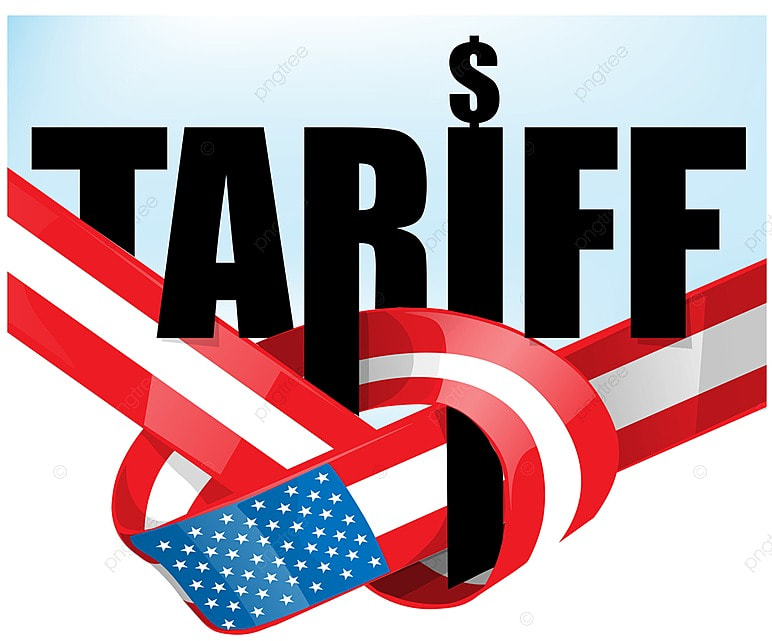Trump's 100% Tariff Threat: Impact On Foreign Film Production

Table of Contents
The Economic Realities of International Film Production
International filmmaking is inherently global. Movies are rarely made in isolation. They rely on a complex web of international partnerships, drawing on talent, equipment, and locations from across the globe. From the film stock itself to post-production services and special effects, the industry thrives on a free flow of goods and services. Trump's 100% tariff threat, however, would fundamentally disrupt this delicate ecosystem.
A 100% tariff on imported goods used in filmmaking would have significant cost implications. Consider the expenses:
- Increased production costs for foreign films shooting in the US: Suddenly, every imported piece of equipment, every roll of film stock, and every element of post-production from overseas would become prohibitively expensive.
- Reduced competitiveness of foreign films in the US market: Higher production costs would directly translate to higher film budgets, potentially pricing foreign films out of the American market and limiting their distribution reach.
- Potential shift in production away from the US to countries with lower tariffs: Filmmakers would inevitably seek out more affordable production locations, resulting in a loss of revenue and jobs for the US film industry. This could involve relocating entire productions to countries with friendlier trade policies.
Impact on Foreign Film Crews and Talent
The economic consequences extend far beyond mere production costs. Trump's 100% tariff threat would significantly impact foreign film crews and talent working in the US. This threat directly jeopardizes:
- Visa restrictions and difficulties for foreign workers: The added economic pressure could lead to stricter visa requirements and greater difficulties for international crews entering the US, further hindering collaboration.
- Decreased opportunities for international collaborations and storytelling: Fewer international collaborations mean a homogenization of narratives and a loss of diverse perspectives on screen. The unique voices and perspectives that enrich global cinema would be muted.
- Potential brain drain as talented individuals seek opportunities elsewhere: Talented individuals would likely seek out more welcoming environments for their craft, potentially leading to a significant loss of skilled labor for the US film industry.
Geopolitical Ramifications of the Tariff Threat
The implications of Trump's 100% tariff threat extend beyond economics; it carries significant geopolitical weight. The most immediate concern is the potential for retaliatory tariffs from other countries. This would harm US film exports, creating a trade war with devastating consequences for the entire industry.
- Trade wars and their negative impact on global film collaborations: Retaliatory tariffs could severely restrict the ability of US films to reach international markets, impacting box office revenue and international distribution deals.
- Damage to diplomatic ties through economic sanctions: Economic sanctions are rarely isolated events; they often strain diplomatic relationships, further complicating international collaboration in the film industry.
- Potential for decreased cultural understanding and exchange: A significant reduction in film exchanges can hinder cultural understanding and exchange between nations, damaging the vital role that film plays in fostering global dialogue.
Adaptation Strategies for Foreign Film Producers
While the threat posed by Trump's 100% tariff is significant, foreign film producers aren't powerless. Several strategies could help mitigate the impact:
- Increased reliance on domestic suppliers and crews: Producers might attempt to source more materials and labor domestically, although this may not always be feasible or cost-effective, depending on the specifics of the production.
- Relocation of production to countries with more favorable trade policies: This is a drastic measure, but a viable option for some productions, potentially shifting filming entirely away from the United States.
- Creative adaptation of scripts and production designs to minimize reliance on imported goods: This would involve creative compromises, potentially altering storylines or visual designs to accommodate the limitations imposed by tariffs.
The Future of International Film Collaboration Under Trade Uncertainty
The long-term impact of such trade policies on international film production remains uncertain. However, a trend toward increased protectionism and nationalism within the industry is a realistic possibility. This would limit creativity and collaboration, potentially leading to a less diverse and less engaging cinematic landscape globally.
Conclusion: Navigating the Uncertain Landscape of Trump's 100% Tariff Threat on Foreign Film Production
Trump's 100% tariff threat posed a serious risk to foreign film production, potentially causing economic hardship, reduced international collaboration, and increased geopolitical tension. Understanding the complexities of international trade and its profound effects on the global film industry is critical. The potential consequences were far-reaching, affecting not only production budgets but also creative diversity, international relations, and the future of global cinematic collaboration. Understanding the implications of Trump's 100% tariff threat is crucial for the future of international film production. Stay informed about trade policies and their impact on the film industry, and advocate for policies that promote global collaboration in filmmaking.

Featured Posts
-
 Trg Sv Petra Papez Francisek In Tradicionalni Blagoslov
May 07, 2025
Trg Sv Petra Papez Francisek In Tradicionalni Blagoslov
May 07, 2025 -
 Paradoks W Najnowszym Sondazu Prezydenckim Onetu
May 07, 2025
Paradoks W Najnowszym Sondazu Prezydenckim Onetu
May 07, 2025 -
 Melwmat Nadrt En Jaky Shan Hyat Mlyyt Balthdyat Walinjazat
May 07, 2025
Melwmat Nadrt En Jaky Shan Hyat Mlyyt Balthdyat Walinjazat
May 07, 2025 -
 Is A Xrp Bull Run Imminent Recent Whale Activity Suggests So
May 07, 2025
Is A Xrp Bull Run Imminent Recent Whale Activity Suggests So
May 07, 2025 -
 Stephen Curry Injury Coach Kerr Expresses Confidence In Speedy Return
May 07, 2025
Stephen Curry Injury Coach Kerr Expresses Confidence In Speedy Return
May 07, 2025
